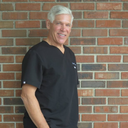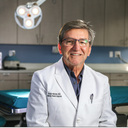Dear Nogirl72,Thank you for your questions.The following are my personal instructions. Specifics, additions or deletions may vary depending on your surgeons preferences. I will break it down into three peri operative time periods:I. Preoperativea. Month before 1) start iron pill 325 mgm (over the counter) a day (builds up blood). May turn stools black and cause constipation. 2) start multivitamin (provides nutrients for healing) no mega E can cause bleeding. 3) stop any hormonal birth control (increase risk of blood clots). 4) stop any over the counter supplements (can cause unknown problems). 5) if you have had Bariatric surgery (weight loss surgery) start on 100 grams of protein per day. 6)stop smoking. No exceptions. 7)if over age 45 or medical issues our surgery center recommends a preoperative clearance with basic labatory data.b. Two weeks before 1) if over age 45 or medical issues provide preoperative clearance letter with labatory data for your surgeon. 2) visit with your Plastic Surgeon who will provide prescriptions (for before and after surgery), counseling and educational materials. Discuss what medications are ok to continue or stop. Bring list of questions. 3) stop shaving around pubic area (razor blade shaving causes small cuts that can harbor bacteria and increase infection rate). 4) NO aspirin, Alleve, Motrin (can interfere with normal clotting) use only plain Tylenol (will not interfere with normal clotting) or pain medication prescribed by your Plastic Surgeon. 5) make arrangements for drop off, pickup and child care.c. Day before 1)have precscriptions filled. 2)bed, recliner, pillows, foam wedges etc ready. 3)make sure you location of surgicenter, see if you can obtain any of Surgicenters required preoperative paperwork to fill out prior to arriving on the day of surgery. 4)call surgicenter for you expected time of arrival 5) have or purchase bell to wring if you need assistance after surgery. d. Night before 1)make out a list of any "last minute" questions, your needs, wants, desires and expectations of the surgery. 2)I have my patients complete a preoperative ennema (decreases fecal load) for postoperative constipation (from pain meds) and potentially reduces risk of blood clots (hard stool pressing on intra abdominal viens during tightening of the muscles). 3)take a shower with antiseptic solution and scrub entire body well. 4) no alcohol containing drinks. 5) nothing by mouth after midnight or 8 hours prior to surgery (unless instructed so by surgicenter).II Operative day 1)awake and take second shower and scrub the surgical area 2)check your list (bring model photos demonstrating your desires). 3)place anti nausea patch behind ear (prevents nausea). 4)take all necessary medications with sips of water. 5)if anxiety may take 5 mgm of Valium with a sip of water. 6)remove all piercings, jewelry, "booby pins" from hair and body. 7) no make up and remove nail polish (intraoperative monitoring). 8) button down or zipper blouse/shirt, sweat pants or stretchable pants. 9)go over your list with Plastic Surgeon and Anesthesia provider. 10) reaffirm with surgicenter when your postoperative care provider should be at the surgicenter for postoperative education and instructions. 11) ask to have deep vien precautions (DVT). I personally give 5,000 units heparin, TED hose, and sequential compression device (before, during and after surgery).III Postoperativea) immediate 1) communicate with your recovery room nurse (pain, nausea, etc). 2) do what you are asked to do. 3) I provide a abdominal binder (check with your surgeon for their preference).b) discharge 1) anti DVT program: leg/foot exercises, TED hose, and (I send home with) portable SCD device to be used for two weeks after surgery. Get out of bed and walk around house every 1-2 hours while not sleeping. Leave SCD on while sleeping or resting for next two weeks. 2)incentive spirometer every hour after surgery (improves breathing after general anesthesia. 3) if drains used measuring cup and chart for recording out put as directed. 4)Foley catheter: I personally send home with and have patient remove 6 hours after surgery (some patients develop urinary retention while general anesthesia wears off and will require re-cathederazation. 5) walking in haunched over position. I provide a walker for my patients. 6) bed position "lazy boy" postion (use recliner, hospital bed or pillows/foam wedges). 6) diet progressive to prevent nausea: clear liquids (gatoraide, broth, tea) for first 8 hours, liquid diet next 8 hours (soups,pudding,yogurt), soft diet for next 8 hours (well cooked oatmeal or pasta) after 24 hours regular diet. Start stool softeners and anti constipation program. 7)Pain management: I personally inject long acting local pain reducers into the surgical area and provide a postoperative non narcotic pain reliever that lasts several days. It is ok to start using aspirin, Alleve, Motrin after surgery and alternate with oral narcotics. Do not take pain medications on a empty stomach. Crackers before and after medications (to prevent nausea and upset stomach). I trust you have chosen a experienced Plastic Surgeon who is Certified by the American Board of Plastic Surgery and ideally a member of the American Society for Aesthetic Plastic Surgery (denoting by membership as having met additional criteria and a focus on Cosmetic Plastic Surgery).My best wishes,



